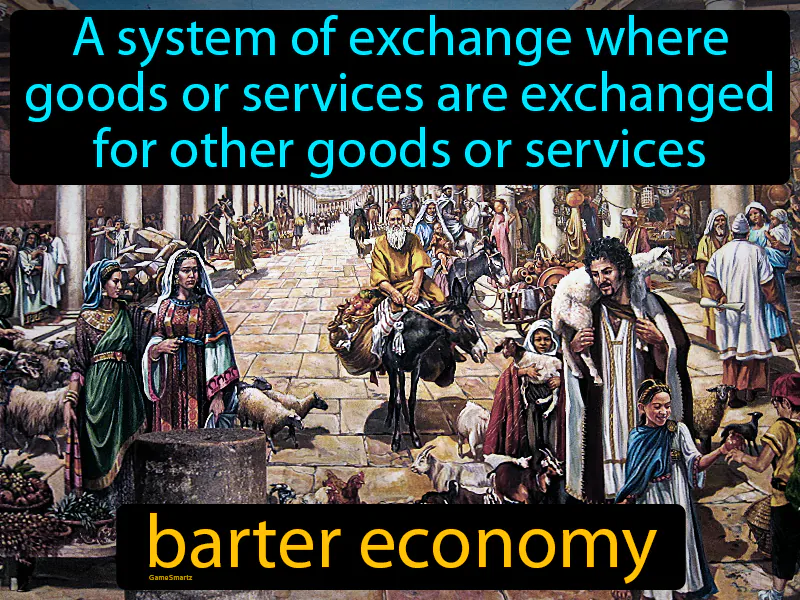Barter Economy
Barter Economy: Easy to understand
In the Ancient Middle East and Egypt from 3200BC to 500BC, a barter economy was crucial because it allowed people to trade goods and services directly without using money. This system was important because it facilitated trade in societies that did not have a standardized currency, helping people obtain what they needed, such as food or tools, by exchanging what they had. However, bartering was sometimes challenging because it required both parties to want what the other offered, known as the "double coincidence of wants." Today, bartering still occurs, like when neighbors exchange garden vegetables for babysitting services, showing how cooperation can benefit communities without cash. This concept matters because it promotes resourcefulness and builds relationships by encouraging people to help and rely on one another.

Practice Version

Barter Economy: A system of exchange where goods or services are exchanged for other goods or services. Barter economy. In history, a barter economy was used before money existed, where people directly traded items they needed.